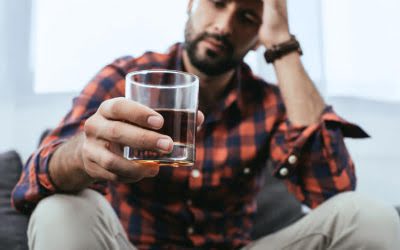Drinking too much can make even the best of us look “sloppy.” That’s because alcohol activates a receptor in the brain called TLR4, which impairs motor function. This can lead to behavior changes like slurred words and stumbling when we are drunk. Excessive drinking has numerous impacts on your body and mind, ranging from mild to severe. Learn which signs to look out for, and how to care for your well-being.

Alcohol Gene Mutation and Dopamine: Unraveling the Genetic Influence on…
It might also be best for these individuals to avoid excessive drinking. In this analogy, the individual using alcohol is the fly, while the substance itself is the Venus Flytrap. In addition, excessive alcohol use results in elevated levels of cortisol, a stress hormone.
Follow us on social media
One 2005 research review showed that your liver eliminates more than 90 percent of alcohol in your blood. This is down to the booze releasing the greatest hits of chemical brothers dopamine and serotonin — two hormones that make you feel good. The stages of being drunk range from sobriety to potential death, with each stage characterized by specific emotional and physical symptoms.
- People with a high tolerance for alcohol may need to drink greater amounts to feel the same effect.
- Someone might dread the tossing and turning that comes with insomnia.
- It can be helpful to know the signs of being drunk so you can avoid possible harm to yourself by continuing to drink.
- I am a passionate beer connoisseur with a deep appreciation for the art and science of brewing.
- His approach focuses on altering perceptions and dispelling alcohol-related delusions.
That’s not all, folks: Other factors
The brain adjusts for the increases in GABA and dopamine by reducing its own production in an effort to maintain equilibrium. As a result, tolerance will set in and ever more alcohol will why does being drunk feel so good be needed to get the same high. A crafty molecule, ethanol can pass the blood-brain barrier with amazing ease.
- As a result, individuals may engage in risky behaviors, such as driving under the influence or making poor financial decisions.
- While acute alcohol intake may increase serotonin release, chronic alcohol use can lead to long-term alterations in serotonin function.
- After it enters your digestive system, it takes a ride in your bloodstream, passes through cell membranes and strolls through the heart.
- This is down to the booze releasing the greatest hits of chemical brothers dopamine and serotonin — two hormones that make you feel good.
- A crafty molecule, ethanol can pass the blood-brain barrier with amazing ease.
- Being drunk can feel good initially because alcohol triggers the release of feel-good endorphins and increases calming neurotransmitters like GABA in the brain.

Conversely, in cultures where alcohol use is more stigmatized, the psychological effects may be more complex and potentially negative. This surge of dopamine creates feelings of pleasure, euphoria, and motivation, contributing to Sober living home the perceived positive effects of drinking. Serotonin, on the other hand, is closely linked to mood regulation and emotional balance. Alcohol’s impact on serotonin is more complex and can vary depending on the amount consumed and individual factors. Initially, alcohol may increase serotonin levels, contributing to feelings of happiness and relaxation. However, chronic alcohol use can lead to long-term imbalances in serotonin function, potentially contributing to mood disorders and depression.